Comcast: Usage-Based Billing for All Customers Within 5 Years; ‘We’re Also Allowed to Do Fast Lanes’
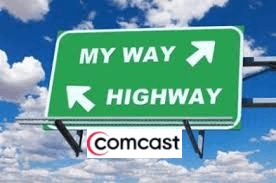 Comcast will introduce usage-based billing on all of its broadband customers nationwide within five years, whether they like it or not.
Comcast will introduce usage-based billing on all of its broadband customers nationwide within five years, whether they like it or not.
Comcast’s executive vice president David Cohen told Variety he predicts the new usage limit will likely be 350GB a month but could increase to 500GB in 2019. Cohen claims consumers in usage-capped test markets prefer a preset usage limit and an overlimit fee of $10 for each additional 50GB of usage.
But Stop the Cap! has learned at no time has Comcast surveyed customers about whether they want their Internet usage metered or capped. That question is evidently not an option.
If Time Warner Cable territories are merged under the Comcast brand, usage billing would likely immediately follow.
Usage caps will go a long way to protect Comcast’s cable television package from online video, which if viewed in significant amounts could put customers over their monthly usage limit and subject them to higher fees.
“We’re trying to go slowly, not out of a regulatory concern (but because) we have no desire to blow up our high-speed data business,” he said.
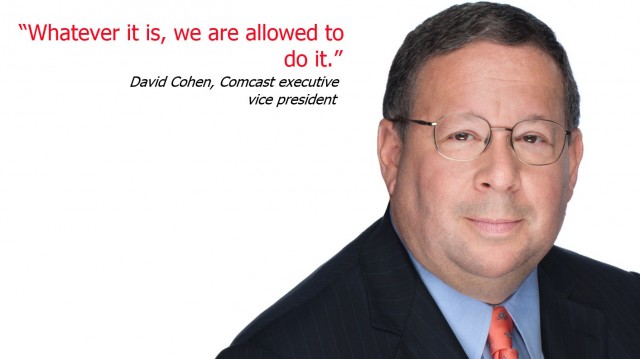 If the merger is approved, Comcast will face significantly less competition in many Verizon service areas also served by Time Warner Cable. Verizon FiOS expansion has ended and the company continues to de-emphasize its DSL service, which is the only broadband competition Time Warner Cable faces in many upstate New York and western Massachusetts communities.
If the merger is approved, Comcast will face significantly less competition in many Verizon service areas also served by Time Warner Cable. Verizon FiOS expansion has ended and the company continues to de-emphasize its DSL service, which is the only broadband competition Time Warner Cable faces in many upstate New York and western Massachusetts communities.
An unrepentant Cohen also doubled down on paid prioritization — Internet fast lanes — declaring regardless of what the FCC decides on Net Neutrality, Comcast still has the right to offer paid prioritization to customers.
“Whatever it is, we are allowed to do it,” said Cohen, speaking at the MoffettNathanson Media & Communications Summit in New York. “We are not sure we know what paid prioritization, or what a fast lane, is. Fast lane sounds bad… (but) I believe that whatever it is, it has been completely legal for 15 or 20 years.”
The way Comcast’s lawyers read “Title II,” even if the FCC declares broadband ISPs to be common carriers, Cohen says Comcast will go right on selling prioritized access, claiming Title II doesn’t prohibit paid prioritization — indeed, he said, “the whole history” of Title II is that carriers are allowed to provide different levels of service at different prices, reports Variety.
Cohen said he expects Washington regulators will promptly approve the company’s buyout of Time Warner Cable with no delays, insisting the deal is “not that difficult” in terms of antitrust implications.


 Subscribe
Subscribe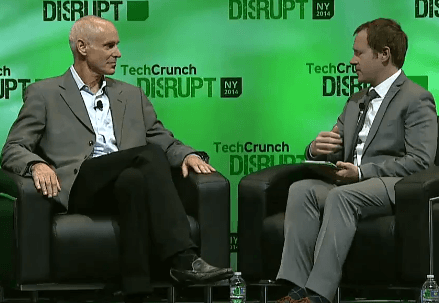
 Smit also promised major broadband speed upgrades and other improvements for Time Warner Cable customers, but nobody mentioned Comcast’s gradual reintroduction of usage caps on residential broadband accounts.
Smit also promised major broadband speed upgrades and other improvements for Time Warner Cable customers, but nobody mentioned Comcast’s gradual reintroduction of usage caps on residential broadband accounts. Companies in the Pacific Coastal region of California are concerned about losing wholesale access to Time Warner Cable’s business fiber network if the cable company is acquired by Comcast.
Companies in the Pacific Coastal region of California are concerned about losing wholesale access to Time Warner Cable’s business fiber network if the cable company is acquired by Comcast.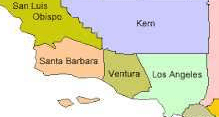 Currently, third-party access to cable broadband technology is provided on a voluntary basis by cable operators. Regulated telephone companies like Verizon and AT&T that serve California are required to offer open access to competitors, at least on their copper line networks.
Currently, third-party access to cable broadband technology is provided on a voluntary basis by cable operators. Regulated telephone companies like Verizon and AT&T that serve California are required to offer open access to competitors, at least on their copper line networks.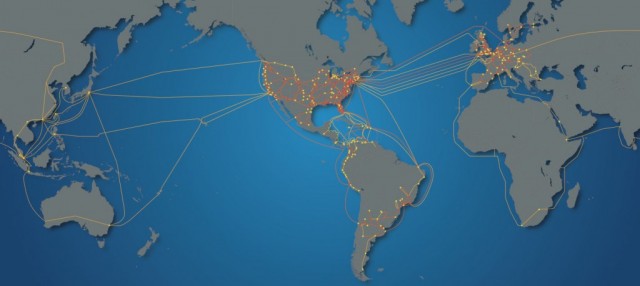

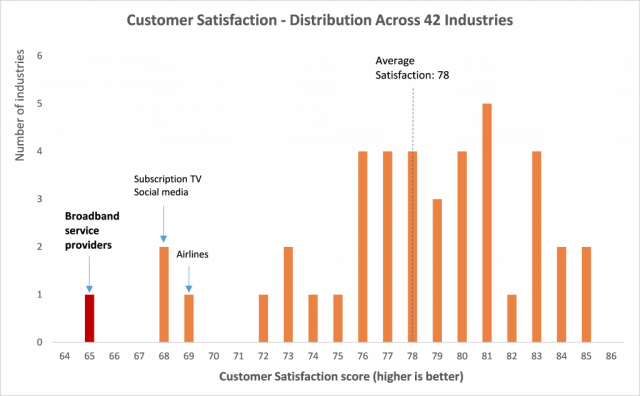 However, Taylor says more than a year ago, something suddenly changed at five U.S. Internet Service Providers. They stopped periodic upgrades and allowed some of their connections to become increasingly busy with traffic. Today, six of Level 3’s 51 peer connections are now 90 percent saturated with traffic for several hours a day, which causes traffic to degrade or get lost.
However, Taylor says more than a year ago, something suddenly changed at five U.S. Internet Service Providers. They stopped periodic upgrades and allowed some of their connections to become increasingly busy with traffic. Today, six of Level 3’s 51 peer connections are now 90 percent saturated with traffic for several hours a day, which causes traffic to degrade or get lost. In fact, Netflix traffic seems to be a common point of contention among Internet Service Providers that also sell their own television packages. They now insist the streaming video provider establish direct, paid connections with their networks. Level 3 is affected because it carries a substantial amount of traffic on behalf of Netflix.
In fact, Netflix traffic seems to be a common point of contention among Internet Service Providers that also sell their own television packages. They now insist the streaming video provider establish direct, paid connections with their networks. Level 3 is affected because it carries a substantial amount of traffic on behalf of Netflix.


